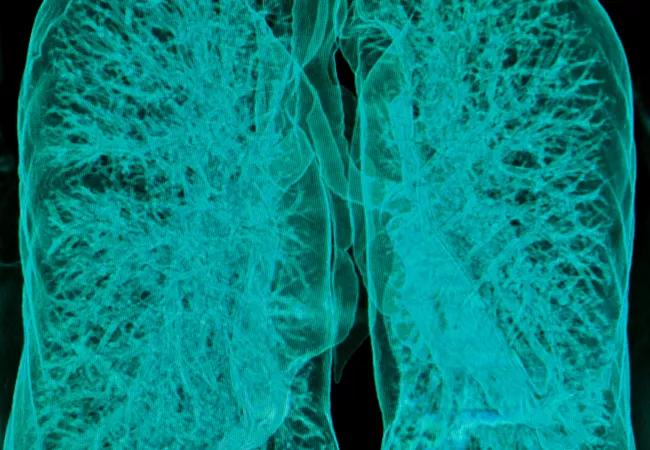New recommendations promote high quality screening programs

Image content: This image is available to view online.
View image online (https://assets.clevelandclinic.org/transform/9e43eff5-ebec-45ba-aa2c-4d32f566df51/17-PUL-4700-Mazzone-Hero-Image-650x450pxl_jpg)
17-PUL-4700-Mazzone-Hero-Image-650x450pxl
Advertisement
Cleveland Clinic is a non-profit academic medical center. Advertising on our site helps support our mission. We do not endorse non-Cleveland Clinic products or services. Policy
The new lung cancer screening guidelines presented at CHEST 2017 have now been confirmed and published in CHEST. Unlike our previous guideline, this version includes recommendations for implementation of low-dose CT screening, from how to select patients appropriately to how to manage abnormal results. We also updated some of the core recommendations and have provided less formal statements based on expert consensus where evidence does not support formal guidelines.
Our rigorous, systematic review of the most recent literature regarding lung cancer screening helped the panel develop six graded recommendations and nine ungraded, consensus-based statements. Noteworthy updates to existing core recommendations include:
Advertisement
While we have seen an increase in favorable outcomes utilizing a centralized management approach at Cleveland Clinic, the guidelines recognize that screening programs come in many forms. Increasing access to high quality screening programs is a priority for improving patient outcomes, and the panel has provided statements to guide programs regarding:
As guideline chair, my hope is that the new recommendations and statements will allow high quality screening programs that respect patient values to proliferate. When high quality programs screen patients, the balance of benefit and harms tips toward lung cancer screening — cancers are detected sooner, and fewer unnecessary interventions occur.
Dr. Mazzone is Director of the Lung Cancer Program and Lung Cancer Screening Program for the Respiratory Institute.
Advertisement
Advertisement
First-of-its-kind research investigates the viability of standard screening to reduce the burden of late-stage cancer diagnoses
Global R&D efforts expanding first-line and relapse therapy options for patients
Study demonstrates ability to reduce patients’ reliance on phlebotomies to stabilize hematocrit levels
A case study on the value of access to novel therapies through clinical trials
Findings highlight an association between obesity and an increased incidence of moderate-severe disease
Cleveland Clinic Cancer Institute takes multi-faceted approach to increasing clinical trial access 23456
Key learnings from DESTINY trials
Overall survival in patients treated since 2008 is nearly 20% higher than in earlier patients